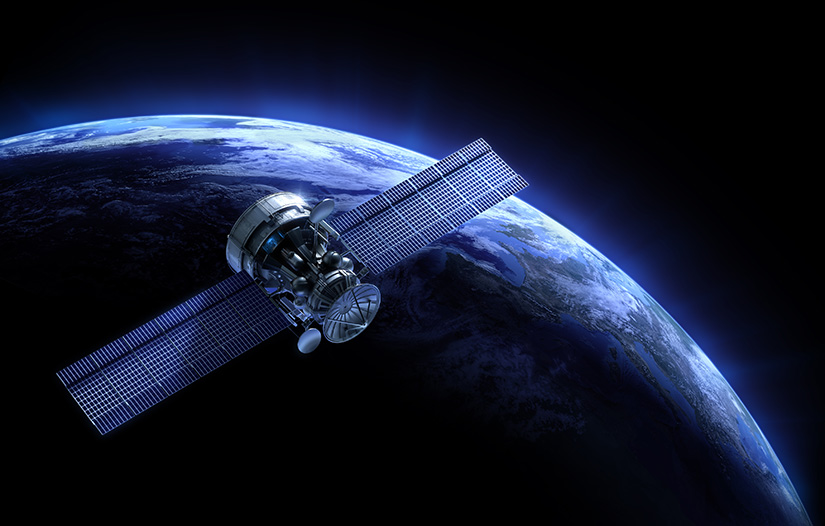On April 4, 2023, the 74th anniversary of the 1949 North Atlantic Treaty’s entry into force, Finland became the 31st member of NATO[1]. Sweden, which applied at the same time as its neighbor, is widely expected to be the 32nd. This dramatic shift in policy ended the countries’ historic position of military non-alignment, in part due to Russia's unilateral invasion of Ukraine pushing public opinion in Finland and Sweden away from supporting non-alignment, , and opening the way for them to join NATO[2]. More importantly, however, it has been argued that the Nordic countries and NATO have reached a consensus on adapting to the changing strategic environment in the Arctic and strengthening deterrence and defense in new domains of security[3]. In this article, I examine the strategic significance of the Nordic countries' membership in NATO in terms of the importance of operations in the new domains and draw implications for the future security of Japan.

Changing Strategic Environment in the Arctic
Due to melting polar ice and environmental changes associated with the effects of climate change, the Arctic region is now becoming an area of competition and confrontation between nations over shipping routes and resources. In fact, since 2005, Russia has been re-establishing its former Soviet-era military bases in the Arctic Ocean, and China has been dispatching large icebreakers to increase its presence in the region. As each of the countries involved continues to strongly assert their own interests and rights, there is a growing concern that conflicts over these interests may begin to take shape in the future. In response to these changes, NATO decided in 2018 to create Joint Force Command Norfolk, its only operational command based in North America, for the purpose of strengthening North Atlantic security. Additionally, it is examining its defense posture in the broader northern region, including the Arctic Ocean, through exercises such as Steadfast Defender 2021. Furthermore, with growing concerns over the vulnerability of undersea infrastructure assets, symbolized by the 2022 Nord Stream pipeline blowout[4] and the severing of fiber-optic cables off Norway's coast, the strategic importance of the Nordic countries is once again attracting attention[5]. It is hoped that the Nordic countries' membership will enhance NATO's ability to deter and deal with Russia, as well as ensure transatlantic global security.
Deterrence and Defense in the New Domains
Today, the importance of information and communication data continues to grow, to the extent that it has been said that "data is the oil of the 21st century[6]. Until now, the world has been increasingly dependent on the global network of submarine cables as a pathway for its vast amounts of data. However, with the dramatic advances in information and communications technology (ICT) and the rapid utilization of outer space, the role of satellite communications is being reevaluated. For example, Starlink, a civilian satellite communications Internet service using satellite constellations that attracted attention during the Russian invasion of Ukraine, played a complementary role to existing communications infrastructure due to its versatility and usefulness, and contributed significantly to the Ukrainian military's ability to continue fighting. The role of digital data in combat is also changing dramatically due to the rapid growth of information-gathering assets in space, cyberspace, and other areas, as hybrid warfare combining military and non-military means is finding more frequent use[7].It is still fresh in our minds that, in the recent invasion of Ukraine, commercial satellite imagery provided by companies such as Maxar Technologies, electronic signal information and SAR (radar) information detected from radio sources, and image data taken by smartphones and other devices in distant areas and near battlefields were all processed in a comprehensive and centralized manner to form big data for intelligence purposes, which directly affected the success or failure of individual battles. This means that as the battlefield rapidly becomes more visible and new operational domains such as cyber, space, and cognitive become more important, the use and preservation of digital data in warfare is starting to decide who wins and loses wars. Thus, with the military facing the urgent task of ensuring the secure and stable use of this data[8], the Nordic countries, with their high level of IT technology, must have thought it essential to join NATO to ensure diversity and leadership in the future battle over data[9].

Collective Self-Defense (Article 5 Mission) and Security in New Domains
The new membership of the Nordic countries will once again highlight the challenges of invoking the right of collective self-defense (Article 5), the core of the multilateral military alliance, as threats in the new domains become more diverse and complex. Already in 2014, NATO collectively confirmed that it could be a requirement to invoke Article 5 against cyberattacks, and has continued to ensure this requirement remains effective in the North Atlantic Council (NAC) since then. Furthermore, at the London Summit in December 2019, NATO identified outer space as a fifth area of operation alongside land, sea, air, and cyberspace, and subsequently suggested in 2021 that an attack on outer space could , like cyberattacks, threaten security and trigger the invocation of Article 5. In the midst of such a trend, it is expected that the Nordic countries' accession to NATO will be an opportunity to confirm the security of digital data via the Arctic and outer space as a major issue for the Alliance, and to begin discussions on whether attacks on civilian infrastructure such as undersea cables and communications satellite assets should also be subject to Article 5 application.
This may be an opportunity to transform NATO, as there is a strong awareness within the Alliance of the need for collective defense in domains that were not previously considered to be the subject of security, in an era in which the battlefield is becoming more visible through the active introduction of advanced technology, and in which the focus of combat is shifting more toward virtual space.
Changes in the Security Environment and Japan's Defense
In January 2023, the Japan-U.S. Security Consultative Committee (Japan-U.S. "2+2") confirmed that, in certain cases, space-related attacks would trigger Article 5 of the Japan-U.S. Security Treaty, as these kinds of attacks are a clear challenge to the security of the alliance. It has already been clarified in the Japan-U.S. "2+2" in April 2019 that a cyber-attack constitutes an armed attack under Article 5 of the Japan-U.S. Security Treaty, expanding the scope of the Article.
In the future, amid growing concerns surrounding the threat of China's annexation of Taiwan by force, China will likely seek to disrupt civilian life and worsen public security in Taiwan, utilizing operations in new domains ahead of direct military operations against Taiwan in order to localize war damage and end military attacks in a short period of time. As part of this strategy, there is concern that China will take steps to cut submarine cables as transmission lines for critical data and sabotage or destroy communications satellites in order to cut Taiwan off from the flow of information from the international community. At that time, it would be desirable for Japan and the U.S. to complete coordination on joint measures in the event that China, as part of its A2/AD strategy, attempts to disseminate disinformation, conduct cyber and space attacks, and engage in sabotage to contain U.S. forces in Japan and the Self-Defense Forces.
This will require redefining the utilization and preservation of operationally relevant data as a key issue for the U.S.-Japan alliance, and guaranteeing its stable use through preventing attacks and interference with space communications assets and undersea cables, which are critical pathways for digital data. In light of the high probability that non-military entities such as civilians and private companies, which are the greatest beneficiaries of such digital data, will suffer serious casualties from attacks, the Japanese government should provide a broad and careful explanation of the possibility of such a situation and its effects to the domestic public, and promote measures to comprehensively improve the digital data preservation environment. In this article, I have shown that the Nordic countries' accession to NATO will not only strengthen their existing collective defense posture, but will also have an impact on new strategic environments and domains. We should not overlook the fact that this has extremely important implications for the future security of Japan.

(2023/05/22)
Notes
- 1 Sweden has not yet had its accession ratified due to the reluctance of Turkey and Hungary, mainly for political reasons. However, with both countries already invited to join at the Madrid Summit in 2022, and with all member states having signed the accession protocol, Swedish accession should be only a matter of time.
- 2 René Nyberg, “Russian Collateral Damage: Finland and Sweden’s Accession to NATO,” Carnegie Endowment for International Peace, June 10, 2022.
- 3 JENS STOLTENBERG, “In the face of Russian aggression, NATO is beefing up Arctic security,” THE GLOBE AND MAIL, AUGUST 24, 2022.
- 4 Julian Borger,” Nord Stream attacks highlight vulnerability of undersea pipelines in west,” The Guardian, 29 September,2022.
- 5 Alan Cunningham, “Underneath the Ice: Undersea Cables, the Arctic Circle, and International Security,” The Arctic Institute, March 29, 2022.
- 6 Lasse Rouhiainen, Artificial Intelligence: 101 Things You Must Know Today About Our Future, Harper Perennial ,1993, p.67.
- 7 For example, in the Russian invasion of Ukraine, one of the reasons why the Ukrainian military is fighting evenly with the powerful Russian military is that data from battles is being provided in a timely and appropriate manner, backed by public and private support from Western countries in the form of satellite imagery, satellite communications, and open source intelligence. The volume of information, which is to say battle data, this has allowed Ukraine to gather has far outstripped what Russia possesses, and thus Ukraine’s data-driven fighting style, can be strongly linked to its combat superiority.
- 8 National Oceanic and Atmospheric Administration, “Submarine Cables,” October 4, 2022.
- 9 NATO,” Pre-ministerial press conference by NATO Secretary General Jens Stoltenberg ahead of the meetings of NATO Ministers of Foreign Affairs,’ April 3, 2023.

